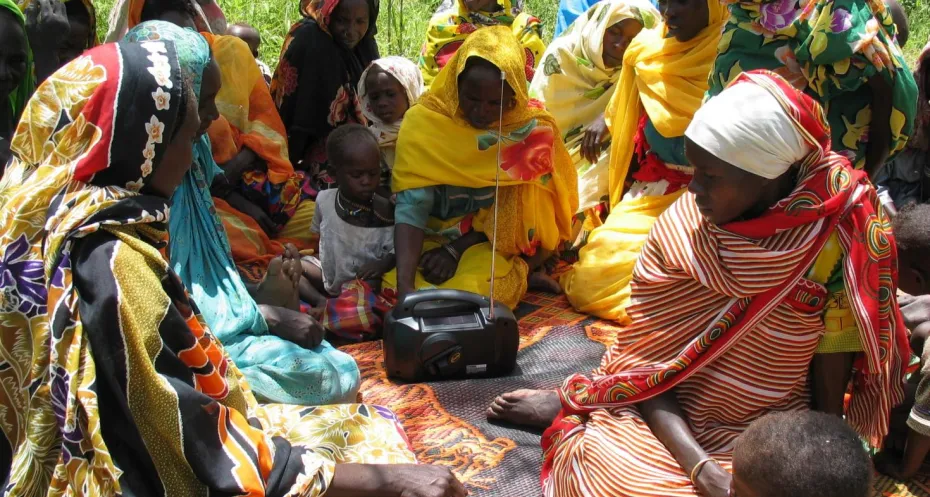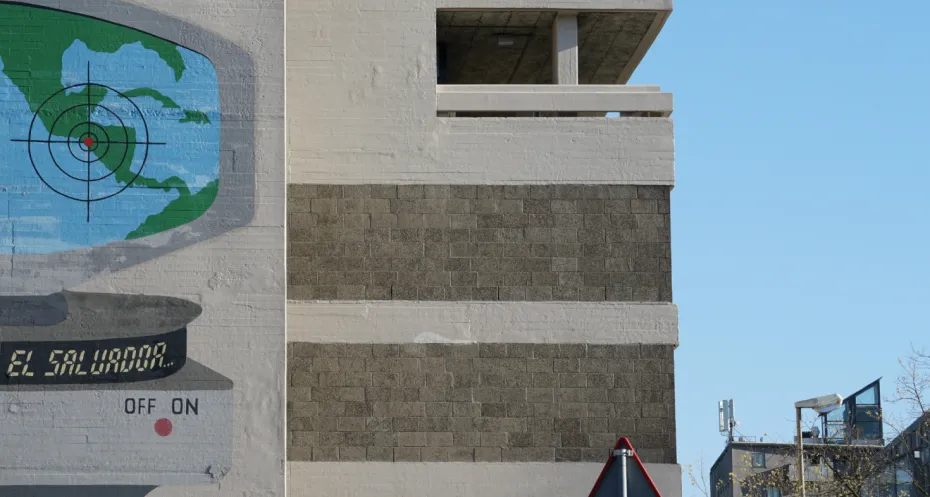Sudan steps into media darkness

Sudan has dealt with many unrest in its history, but the past two years hope shimmered after the ‘people’s revolution’ brought about the end to the repressive 30-year al-Bashir led regime. It gave Sudan an opportunity to move towards democracy. On 25 October 2021, this was put to a halt, after the military forced a coup and took over control. The state of press freedom and access to information is once again dire.
The current situation is extremely worrisome, as we hear from our year-long partner Dabanga. Dabanga is one of the few independent news and information broadcasters in Sudan, providing lifesaving news and information to citizens. Dabanga is operating in exile from Amsterdam, and has been supported by Free Press Unlimited for over a decade.
First they come for the journalists
After the coup, all state radio and TV offices were immediately brought under the control of the 'moral guidance' unit for the military. This has been followed by arbitrary arrests of, among others, the influential talk show host of Sudan TV, Mahu Abu Joukh, the media advisor to Prime Minister Hamdok, Faisal Mohammed Salih, and Fayez el Sheikh, who was arrested after he condemned the coup on Al Jazeera television. He was media advisor of the Ministry of Agriculture. All detainees have not had contact with their families and their whereabouts are unknown.
Radio Dabanga editor-in-chief Kamal El Sadig, shares the following about the first hours after the coup: “After Lieutenant General Al-Burhan’s coup, the army cut off the internet, and stopped the printing press. Therefore the printed newspapers were unable to publish on that day. Hundreds of websites that were working around the clock disappeared completely, and dozens of FM radios went silent In Khartoum. The journalists were unable to communicate, as the phone lines were completely cut off, and Sudan entered, once again, a state of complete media darkness after two years of freedom, media recovery and progress.”
Access to information
Access to information is very limited. Sudan is now a complete media dark area for the local media and information outlets. The public only has access to Dabanga on satellite TV in cities, and short wave radio in regions and rural constituencies. Dabanga stepped it up by starting a daily news radio programme on TV (Sudan Today) which can not be blocked by the authorities.
This has become an important source of information for the general public. Several regional resistance committees are listening to it to be informed, for example about the teachers strike, or the protest march from Saturday 13 November that was joined by thousands, where soldiers and snipers shot and killed ten protesters.
The only other source of reliable information are international TV stations, mainly the Arabic channels Al Jazeera and Al Jazeera Mubasher. Jazeera director Al Muselma Al Kabbashi of their Sudan office was arrested last Sunday, but fortunately was released again on Tuesday 16 November.
Blocking the voice of the street
At this moment some radio and TV stations are operating again, but are controlled by the military which makes the information biased and unreliable. In an interview with Radio Dabanga from Khartoum, via the Sudan Today programme, on Friday 12 November, the journalist Faisal Al-Baqer, founder and director of the Journalists Network for Human Rights, said: “Immediately after the coup, the soldiers affiliated with the Intelligence and the Moral Guidance Branch, stopped radio and television from working for days, after which they were allowed to work again, but according to their terms and directions. They intend to block the real voice of the street, and in return, carry out propaganda in favor of the coup only.”
Faisal Al-Baqer confirms that state radio and television broadcasts have become centralized, to run from Khartoum, through the National Radio and Television Corporation. There the intelligence officers control the radio and television, and they only disseminate content that corresponds with the narrative of the leaders of the coup.
The newspapers have been able to start printing again, but they also received directives from officers in Military Intelligence specifying that they should not publish any news item, column, article, investigation or report that contradicts the status quo.
However, many news outlets remain resilient, a large number of these printed newspapers have resisted and rejected the directives and instructions so far.
Withstand, no matter what
Sudan has entered a phase of media darkness. The only independent news is coming from the few outlets that are resistant, or are reporting from exile. To confront this media darkness, it is vital to continue this flow of information. Faisal Al-Baqer: “We have to keep spreading the truth, no matter how much sacrifices that costs us. We must continue to put forward the choices of the people, and live up to the values of freedom, justice, peace, and a free and independent press.”



